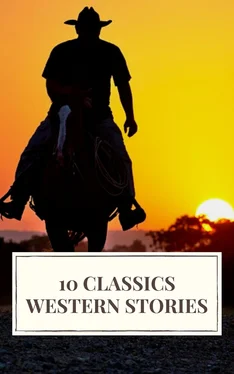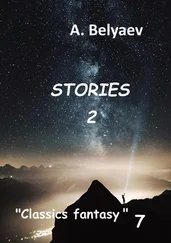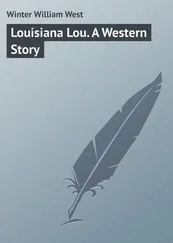Multnomah rose to pronounce sentence. For him there could be but one decision, and he gave it,—the clinched hand, the downward gesture, that said, “There is death between us. We will slay as we shall be slain.”
Cecil was on his feet, though it seemed as if he must fall within the moment. He fought down the pain that pierced his heart like a knife; he gathered the last resources of an exhausted frame for one more effort. The executioners sprang forward with the covering for his eyes that was to shut out the light forever. His glance, his gesture held them back; they paused irresolutely, even in the presence of Multnomah; weak as Cecil was, he was the great white tomanowos still, and they dared not touch him. There was a pause, an intense silence.
“I gave up all to come and tell you of God, and you have condemned me to die at the torture-stake,” said the soft, low voice, sending through their stern hearts its thrill and pathos for the last time. “But you shall not bring this blood-stain upon your souls. The hand of the Great Spirit is on me; he takes me to himself. Remember—what I have said. The Great Spirit loves you. Pray—forgive—be at peace. Remember—”
The quiver of agonizing pain disturbed the gentleness of his look; he reeled, and sank to the ground. For a moment the slight form shuddered convulsively and the hands were clinched; then the struggle ceased and a wonderful brightness shone upon his face. His lips murmured something in his own tongue, something into which came the name of Wallulah and the name of God. Then his eyes grew dim and he lay very still. Only the expression of perfect peace still rested on the face. Sachems and warriors gazed in awe upon the beauty, grand in death, of the one whom the Great Spirit had taken from them. Perhaps the iron heart of the war-chief was the only one that did not feel remorse and self-reproach.
Ere the silence was broken, an old Indian woman came forward from the crowd into the circle of chiefs. She looked neither to the right nor to the left, but advanced among the warrior-sachems, into whose presence no woman had dared intrude herself, and bent over the dead. She lifted the wasted body in her arms and bore it away, with shut lips and downcast eyes, asking no permission, saying no word. The charm that had been around the white shaman in life seemed to invest her with its power; for grim chieftains made way, the crowd opened to let her pass, and even Multnomah looked on in silence.
That afternoon, a little band of Indians were assembled in Cecil’s lodge. Some of them were already converts; some were only awakened and impressed; but all were men who loved him.
They were gathered, men of huge frame, around a dead body that lay upon a cougar skin. Their faces were sad, their manner was solemn. In the corner sat an aged squaw, her face resting in her hands, her long gray hair falling dishevelled about her shoulders. In that heart-broken attitude she had sat ever since bringing Cecil to the hut. She did not weep or sob but sat motionless, in stoical, dumb despair.
Around the dead the Indians stood or sat in silence, each waiting for the other to say what was in the hearts of all. At length the Shoshone renegade who had so loved Cecil, spoke.
“Our white brother is gone from us, but the Great Spirit lives and dies not. Let us turn from blood and sin and walk in the way our brother showed us. He said, ‘Remember;’ and shall we forget? I choose now, while he can hear me, before he is laid in the cold ground. I put away from me the old heart of hate and revenge. I ask the Great Spirit to give me the new heart of love and peace. I have chosen.”
One by one each told his resolve, the swarthy faces lighting up, the stern lips saying unwonted words of love. Dim and misty, the dawn had come to them; reaching out in the dark, they had got hold of the hand of God and felt that he was a Father. One would have said that their dead teacher lying there heard their vows, so calm and full of peace was the white still face.
That night the first beams of the rising moon fell on a new-made grave under the cottonwoods, not far from the bank of the river. Beneath it, silent in the last sleep, lay the student whose graceful presence had been the pride of far-off Magdalen, the pastor whose memory still lingered in New England, the evangelist whose burning words had thrilled the tribes of the wilderness like the words of some prophet of old.
Beside the grave crouched the old Indian woman, alone and forsaken in her despair,—the one mourner out of all for whom his life had been given.
No, not the only one; for a tall warrior enters the grove; the Shoshone renegade bends over her and touches her gently on the shoulder.
“Come,” he says kindly, “our horses are saddled; we take the trail up the Wauna to-night, I and my friends. We will fly from this fated valley ere the wrath of the Great Spirit falls upon it. Beyond the mountains I will seek a new home with the Spokanes or the Okanogans. Come; my home shall be your home, because you cared for him that is gone.”
She shook her head and pointed to the grave.
“My heart is there; my life is buried with him. I cannot go.”
Again he urged her.
“No, no,” she replied, with Indian stubbornness; “I cannot leave him. Was I not like his mother? How can I go and leave him for others? The roots of the old tree grow not in new soil. If it is pulled up it dies.”
“Come with me,” said the savage, with a gentleness born of his new faith. “Be my mother. We will talk of him; you shall tell me of him and his God. Come, the horses wait.”
Again she shook her head; then fell forward on the grave, her arms thrown out, as if to clasp it in her embrace. He tried to lift her; her head fell back, and she lay relaxed and motionless in his arms.
Another grave was made by Cecil’s; and the little band rode through the mountain pass that night, toward the country of the Okanogans, without her.
And that same night, an English exploring vessel far out at sea sailed southward, leaving behind the unknown shores of Oregon,—her crew never dreaming how near they had been to finding the lost wanderer, Cecil Grey.
Chapter 2 THE MARRIAGE AND THE BREAKING UP.
Remembering love and all the dead delight,
And all that time was sweet with for a space.
Swinburne.
After Cecil had been borne from the council-grove, the Indians, rousing themselves from the spell of the strange scene they had just witnessed, looked around for Tohomish the seer. He was gone. No one could remember seeing him go, yet he was missing from his accustomed place, and never was he seen or heard of more. Upon his fate, lost in the common ruin that engulfed his race, the legend casts no ray of light. It is certain that the fall of the Bridge, with which his life was interwoven, had a disastrous effect upon him, and as he said, that the strength of his life was broken. It is probable that the orator-seer, feeling within himself that his power was gone, crept away into the forest to die. Perhaps, had they searched for him, they would have found him lying lifeless upon the leaves in some dense thicket or at the foot of some lonely crag.
Whatever his fate, the Indians never looked upon his face again.
Multnomah made no comment on the death of Cecil, or on the prophecy of Tohomish, so much at variance with his own interpretation of the fall of the Bridge. Whatever he had to say was evidently held in reserve for the closing talk with which he would soon dismiss the council.
“You shall see Multnomah’s daughter given to Snoqualmie, and then Multnomah will open his hand and make you rich.”
So said the war-chief; and a runner was dispatched with a summons to Wallulah. In a little while a band of Indian girls was seen approaching the grove. Surrounded by the maidens, as if they were a guard of honor, came Wallulah, all unconscious of the tragedy that had just been enacted.
Читать дальше












